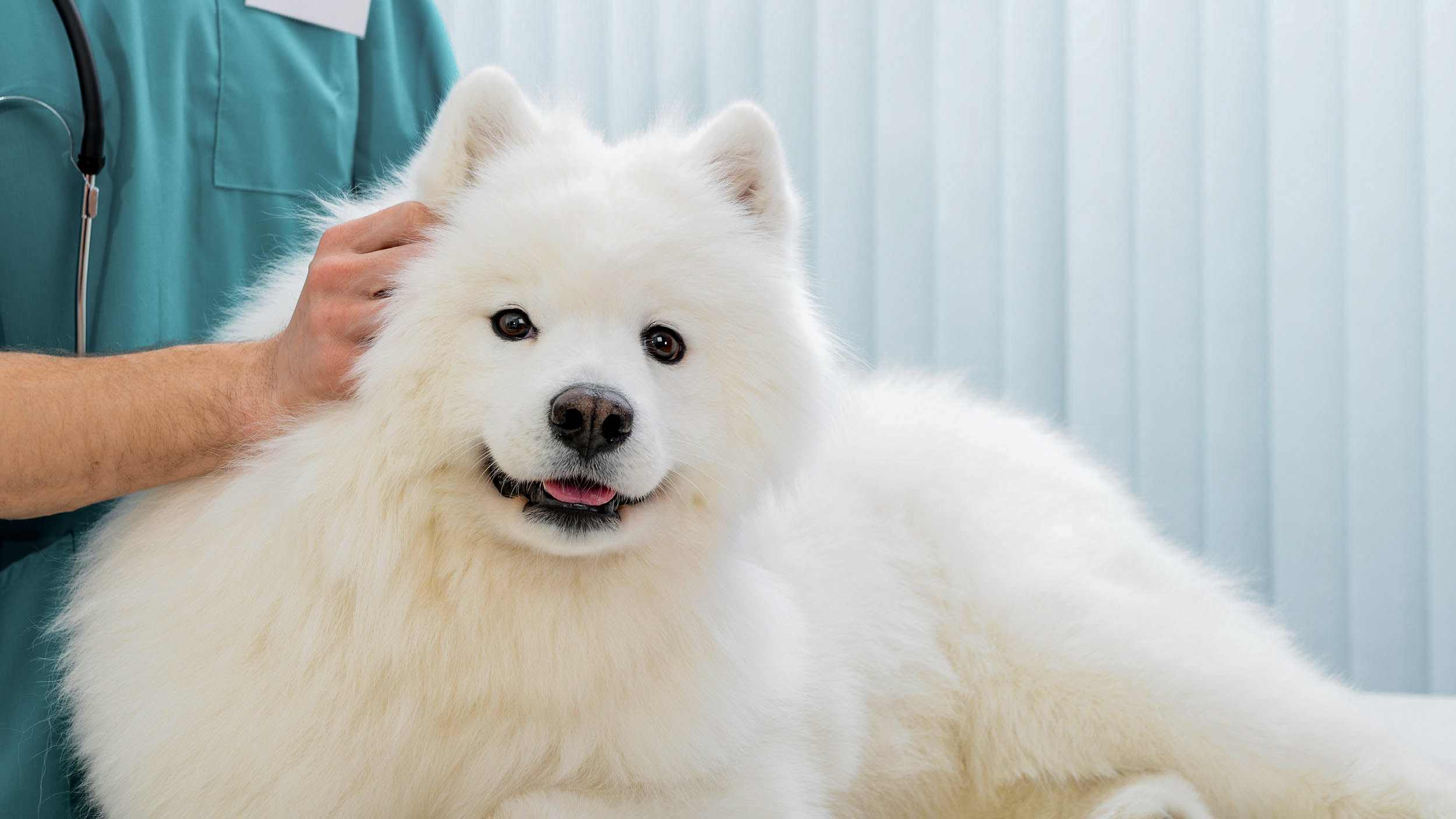Common Skin Conditions and Symptoms in Dogs

Depending on your dog's breed, age, and a number of genetic factors, you may find they are prone to skin conditions. You can support your dog’s recovery, as well as prevent future problems, in a number of simple ways.
What’s important about your dog’s skin?
A dog’s skin acts as a barrier between their organs, muscles and skeleton and their environment. It’s the largest organ in their body and, including their hair, makes up around 12% of their entire body weight. It offers vital protection against parasites, stores fat, water and vitamins, and houses sensitive nerve endings.
The skin is a barrier which prevents water loss, reducing the chance of dehydration and helps regulate their body temperature. A dog’s skin also secretes sebum, an oil-like substance which creates a biofilm over the surface of the skin. This film protects against external threats by managing the balance of ‘good’ and ‘bad’ bacteria, and helps prevent bacteria from multiplying. It also maintains the pH balance of your dog’s skin to help prevent irritation from environmental changes.
In these ways, your dog’s skin is an important filter between their environment and their body, and needs to be looked after properly.
What are the symptoms of skin conditions in my dog?
Much like the symptoms of a skin condition in a human, your dog might suffer from dry, irritated, or red skin in certain areas. Their coat may appear dry or greasy, there may be some hair loss, or you may notice they have dandruff. It’s likely that the first thing you’ll spot is your dog scratching itself more as it tries to relieve some of its discomfort.
Particular breeds of dog have their own skin conditions. Dogs such as Bulldogs or Pugs can suffer irritation from bacteria and yeast becoming ‘stuck’ in their folds of skin. Medium-sized dogs who may spend lots of time outside or working are exposed to environmental pressures, which means their skin’s natural defences need special support. German Shepherds, Dalmatians, Miniature Schnauzers and Shih Tzus all have similarly sensitive skin, so it’s important to ask your vet if there are any genetic predispositions to skin conditions you should know about.

Why do dogs get skin conditions?
Some skin conditions in dogs are created or exacerbated by external factors. Dogs who spend a lot of time outdoors are in contact with a greater variety of potential pests and parasites, which in turn can cause inflammation. Although hygiene is important, if you use a shampoo or cleaning product which strips their skin of sebum this can similarly cause problems.
A nutritionally-unbalanced diet may contribute to the occurrence of skin conditions in dogs. There are several types of adverse reactions to food, and the most common is allergic. As a result, symptoms such as scratching, redness and inflammation may be triggered. Your dog's sensitivity, combined with their diet, can then cause signs of skin irritation.
Keeping your dog’s skin healthy requires a complex mix of nutrients, including long chain fatty acids like those from the omega 3 and omega 6 groups. Trace minerals like zinc and copper are important for overall cell function and to help maintain a high-quality coat. Most importantly, high quality proteins which are easy to digest are essential. Your dog’s skin and coat uses a good portion of their daily protein intake, so the right type and amount of protein is important.
You can support your dog’s skin and hair health, and take preventative action against many common skin conditions, by choosing an appropriate food and being aware of any external factors they might encounter. If you’re unsure, ask your veterinarian.
Related Articles

Find a vet
If you have any concerns about your dog’s health, consult a vet for professional advice.
Like & share this page